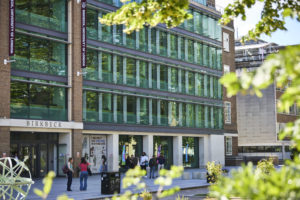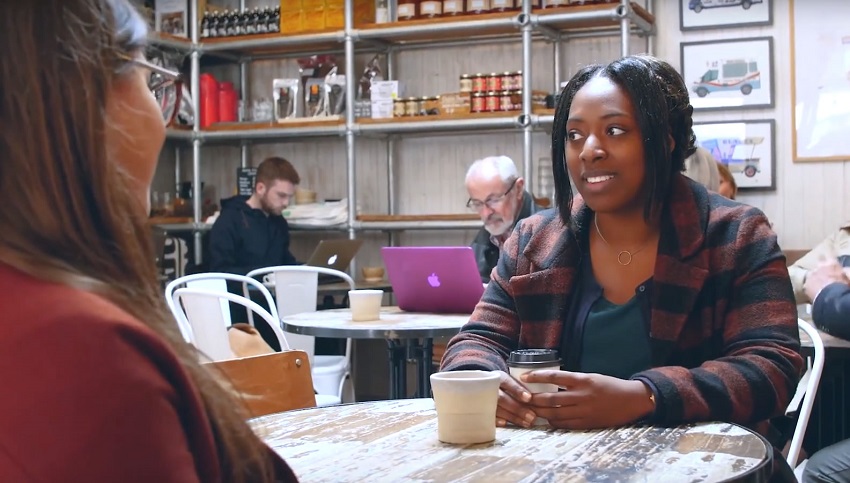Matt Innes is Birkbeck’s Academic and Corporate Deputy Vice-Chancellor, as well Professor of History in Birkbeck’s School of Historical Studies. Here, he reflects on the reach and impact of Birkbeck alumni.
The 2024 election saw a record number of Birkbeck graduates in the new Parliament, with a total of fourteen Birkbeck alumni and Fellows elected. Now that the final ministerial appointments have been announced, Birkbeck can count no fewer than seven alumni and fellows holding government office. These number three cabinet ministers, two ministers of state and a number of other appointments.
The total surpasses the four Birkbeck figures who took up office one hundred years ago, when the first Labour government was formed just a few years after the extension of the vote to all adult males and some women. In that hundred years, Birkbeck figures have played significant roles in a number of governments. Birkbeck is one of the few Universities whose history includes a head of institution who went on to hold ministerial office: Baroness Tessa Blackstone.
The demographic and educational background of new ministers in 2024, and the extent to which it signals a change in the established pattern of UK political life, has attracted analysis and comment. Bridget Phillipson, the new Secretary of State for Education, has spoken about the importance of social class and obstacles to educational success for many of the new Cabinet: although all bar one Cabinet members are graduates, most were the first in their family to be able to attend University, often overcoming significant barriers to do so.
Research by the Sutton Trust has shown that over 90% of the new Cabinet were educated in state secondary schools, in a sharp change even with previous Labour Cabinets (which were typically a third privately educated), and still more dramatic contrast with preceding Conservative governments (often over two thirds privately educated). Over a quarter of the new Cabinet have law qualifications, with politics and history being other popular degree subjects, including three Oxford Philosophy, Politics and Economics graduates and two Cambridge historians.
Of the 17 Prime Ministers who have held office since Winston Churchill in the Second World War, no fewer than thirteen took their undergraduate degree at Oxford (the exceptions being three ‘takeover’ Prime Ministers who came to office mid-Parliament after their predecessors stood down, rather than via the Ballot Box: James Callaghan, John Major and Gordon Brown.
Sir Keir Starmer’s undergraduate degree from Leeds University brings the number of UK Universities with Prime Ministerial alumni to six; Oxford, Cambridge, Edinburgh, Glasgow and – of course – Birkbeck, where Ramsay MacDonald, the first working class Prime Minister, took evening classes in science.
In 1924, the Birkbeck presence in government reflected the university’s position as the institution of choice for education hungry Londoners without the means to access the traditional universities. It exemplified a broader process of change: namely the integration of the institutions and organisations of working-class self-advancement into the formal public life of the nation.
In 2024, Birkbeck’s presence again reflects a broader process of change, as a generation who benefitted from the extension of educational opportunity and university access in the late twentieth century come into office. All seven Birkbeck educated ministers undertook postgraduate or professional studies, with the distinction and flexibility for which Birkbeck is known, providing an educational bridge into professional and political careers. Four of them took Birkbeck’s prestigious politics and government portfolio, which remains popular amongst recent graduates seeking to make their way in the world of policy and politics.
Educational opportunity is one of the new Government’s five core missions, and the crisis ridden state of UK universities is a matter of urgent debate. The personal histories of so many Birkbeck graduates speak to the opportunity created by Birkbeck’s distinctive educational model and the personal and professional growth it fosters. With the university accelerating strategic changes which will deliver even greater accessibility and flexibility, Birkbeck can offer a compelling alternative to traditional university that is keenly relevant to the Government’s mission.
Note:
Birkbeck alumni and Fellows in the Starmer government include: (Cabinet) David Lammy MP, Secretary of State for Foreign and Commonwealth Affairs; Lisa Nandy MP, Secretary of State for Culture Media & Sport; Lou Haigh MP, Secretary of State for Transport. (Ministers) Tulip Siddiq MP, Economic Secretary to the Treasury & City Minister; Georgia Gould MP, Minister of State in the Cabinet Office; Alison McGovern MP, Minister of State in the Department of Work & Pensions; Hamish Falconer MP, Parliamentary Under Secretary in the Foreign and Commonwealth Office; Baroness (Fiona) Twycross, Baroness in Waiting (Government Whip).
More information:



